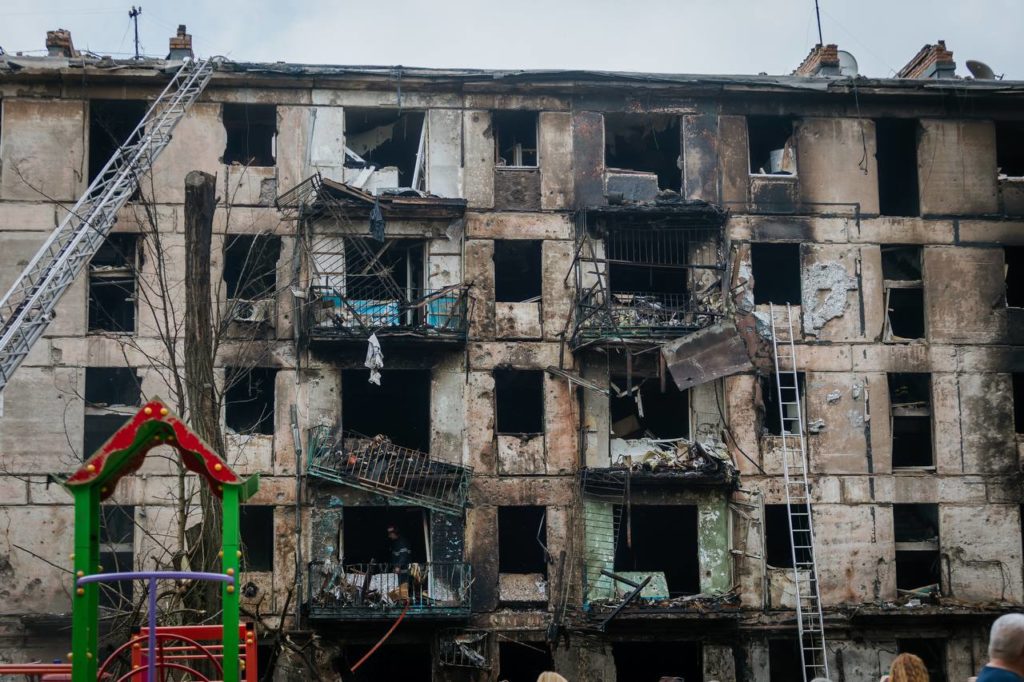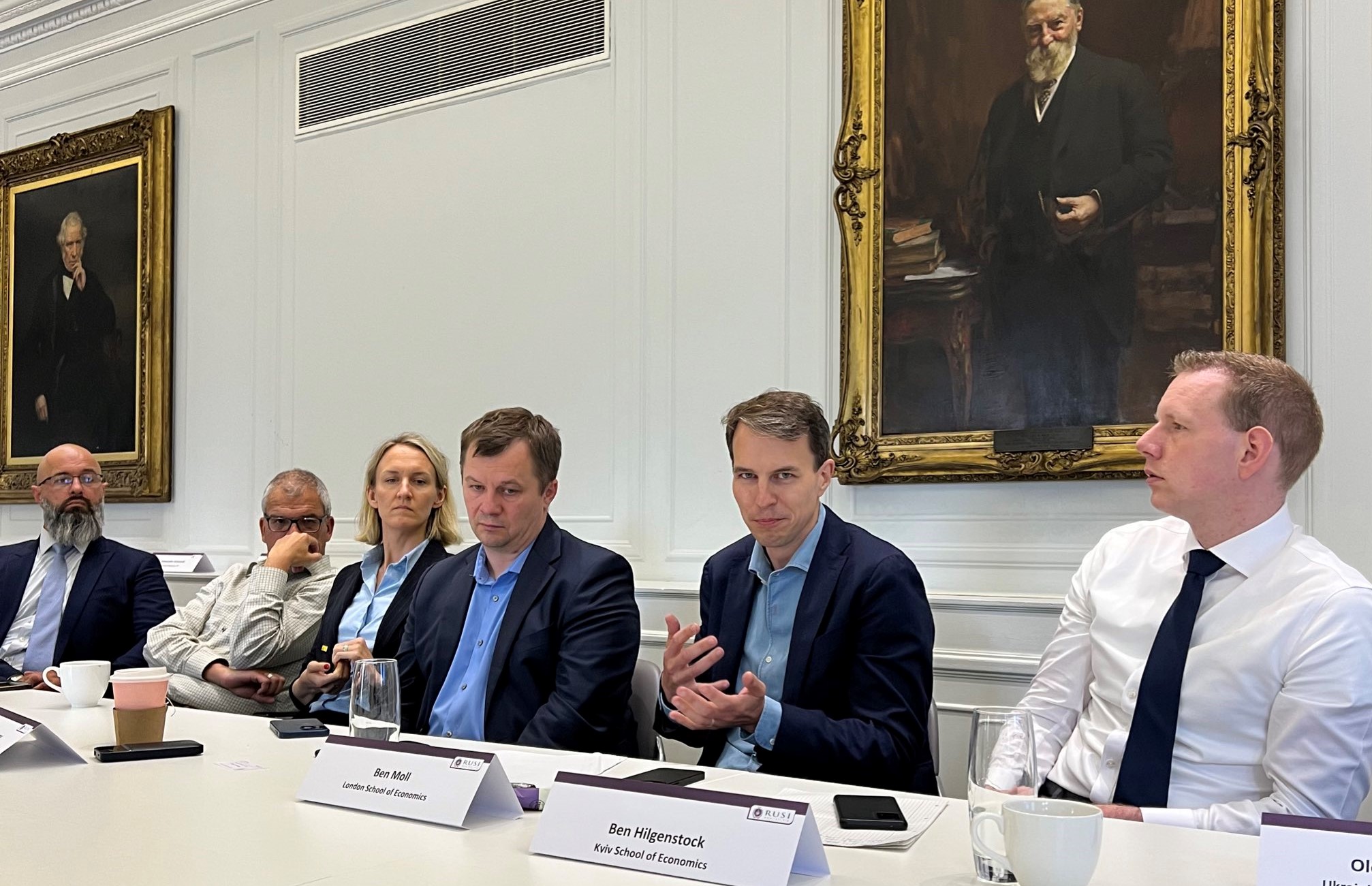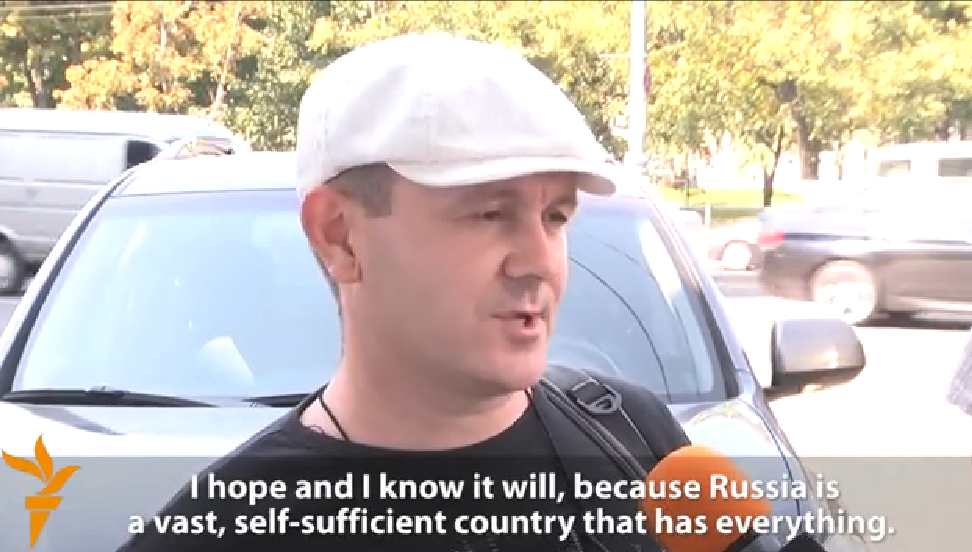By: Victoria Dubiv and Tetiana Gaiduk, Kyiv not Kiev
Kyiv not Kiev sat down with Vladyslav Vlasiuk, advisor to President Zelenskyy's Office and member of the Yermak-McFaul international working group on Russian sanctions, to find out what needs to be done to make anti-Russian sanctions truly effective. And there remains much to be done.
Currently, sanctions loopholes allow Russia to continue its deadly weapons production, used in the war against Ukraine. For example, the missile that killed 11 people in Kryvyi Rih on 13 June contained 53 components originating from democratic countries, the Presidential Office reported.

Experts from the International Working Group on Russian Sanctions, in a joint study with KSE, identified 1,057 foreign components in Russian weapons found in Ukraine, from tanks to missiles and drones.
The aim of the International Working Group, formed at the behest of President Zelenskyy, is to cut off the Russian military-industrial complex's access to money and Western technologies, thereby decreasing Russia's combat capability.
In Ukraine, the group is known as the Yermak-McFaul Group, while internationally it is the Stanford Group.
The Group's goal is to provide expertise to governments and companies worldwide to help formulate effective sanctions that will increase the cost to Russia of invading Ukraine. Their proposals offer governments a menu of potential actions to ratchet up sanctions pressure on Russia.
The Group comprises around 50 Ukrainian and international experts, including from the KSE Institute, Institute for International Finance, Yale School of Management, and the Economists for Ukraine association. Members have expertise across energy, finance, trade, economics and other relevant areas.
To date, the Group has released 12 extensive papers with policy recommendations on strengthening sanctions against Russia. There are also non-papers, statements and other materials.
Composition and strengths
Participation in the Stanford Group is entirely voluntary and unpaid. The experts all have other main professional roles, mostly as leading academics or economists. For example, members include Dr Anders Åslund of the Stockholm Free World Forum, Torbjörn Becker of the Stockholm Institute of Transition Economics, and Jeffrey A. Sonnenfeld of the Yale School of Management.
The Group is not formally affiliated with any government, allowing it to speak freely. As Vladyslav Vlasiuk, the Group's Secretary, explains: "It’s about being capable of pushing on the governments and speaking candidly about the ideas."
New experts are invited to join the Group every few weeks. It is an open platform, not an exclusive club.
Russia plans to double missile production. This report tells what can stop it
Developing papers on Russian sanctions
The Group meets via Zoom every two weeks. Any participant can propose ideas for future papers, studies, and statements.
The process begins with submitting an initial concept document, which Group members can add to. Co-chair Michael McFaul has final control over the documents, drawing on his extensive experience.
While the whole Group discusses new ideas, actual drafting of documents is done by a core team of 5-10 people. These subgroups are informal.
Advocating for change
Once a paper is ready, the key task is communicating its recommendations to partner governments and advocating for implementation. As Vlasiuk explains, this targeted outreach is his core role.
Recent EU sanctions show the influence of the Group's ideas. There is a strong focus on closing loopholes that allow Russia to circumvent restrictions.
The Group liaises closely with President Zelenskyy, Andriy Yermak, key ministers and others to coordinate sanctions policy and implementation. Dialogue with each country focuses on areas of greater openness and readiness for new measures.
According to Vlasiuk:
"If it is the United Kingdom, which is more or less ready and responsive to the idea of sanctioning Rosatom, this is my job to make sure that they have all the relevant information, evidence, and arguments to make that implementation of the Rosatom sanctions idea... happen."
While coordination is strong, differing economic ties with Russia lead some countries to be more hesitant about certain sanctions. However, as Vlasiuk stresses: "Sometimes sanctions are more than just about the money."
Reports show hundreds of key Western components have been found in Russian military equipment in Ukraine. The Group is focused on encouraging sanctions in areas like electronics and semiconductors to cut these lifelines.
Through extensive expertise, coordination and advocacy, the International Working Group on Russian Sanctions is committed to increasing the cost to Russia of its unprovoked invasion of Ukraine.
Watch the full video of Kyiv not Kiev about the Yermak-McFaul working group's approach to Russian sanctions here:
Related:
- Russian companies producing drones and missiles still not sanctioned by the West
- Microchip backalley: Armenia, Kazakhstan help Russia evade sanctions, produce weapons
- Are the sanctions on Russia working?
- Yermak-McFaul sanctions group makes Cold War 2.0 plan for Russia
- Russia plans to double missile production. This report tells what can stop it




